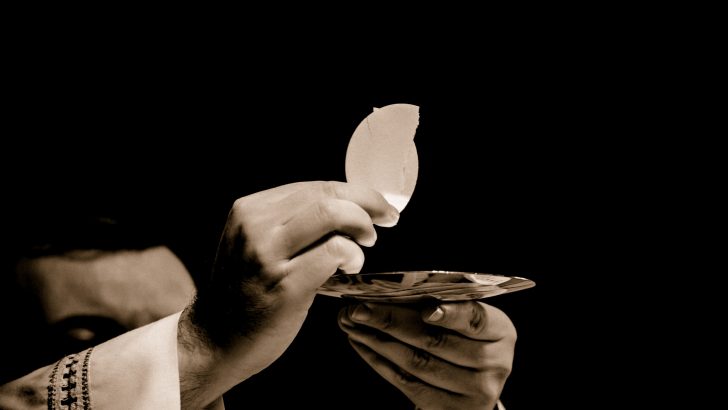One of the great hurts that parishioners share with me over a cup of tea when I speak at missions and novena (remember when we used to be able to do things like that?) is the disappointment that their adult children don’t bring their own children up in the faith. Grandparents often feel marooned with conflicting emotions. On the one hand, they dearly love their children and their grandchildren. On the other hand, they wonder where they may have gone wrong in the transmission of the faith.
They have borne the heat of the day.
“Why don’t they believe us?” a woman said to me late last year. It has stuck with me as a question.
It’s an issue that causes concern and debate in parishes all across the country. This year, due to the coronavirus pandemic, we were unable to celebrate First Holy Communion in our parishes. It was a hugely important day missing from our calendar this year. And yet, a priest told me recently that he wasn’t too bothered as he finds it one of the most dispiriting days of the year.
Problem
How, you might ask, could such a joy-filled day be so dispiriting for a priest? The problem is that he has become tired of witnessing what he believes is little more than a day out for many families. He has built his life around the Eucharist – the source and summit of the Christian life – and yet, for so many families it is little more than something to be ticked off the list.
He told me he often feels under pressure to rush the ceremony so that people can get on with the rest of the day. A couple of years ago he told me that one little girl only made it to the Mass at the Our Father because the hair appointment her parents had arranged for her ran over.
Perhaps…we have elevated the actual day of First Holy Communion to such an extent that what is happening on the day has been obscured and seen as a one-off event”
On another occasion in a previous parish he recalls a man approaching him after to say that his son “didn’t get any” because by the time that family arrived, the Mass was over because they got delayed calling around to the neighbours’ houses collecting cards (and money).
The priest painted a gloomy picture for me, and I have heard similar experiences from clerics in recent years.
In many parts of the country, First Holy Communion day remains a beautiful and vital day in the life of the parishes. Parents work hard with priests and parents to ensure that it is an uplifting faith-filled event and the sacrament is kept at the centre of all the celebrations. But in too many places First Holy Communion day is a symptom of something that is broken in the transmission of the Faith. The day itself has often become more important than the milestone in the Faith life of the child.
One way to remedy this might be to abandon the tradition of First Holy Communion days per se. Why, for example, couldn’t various classes be invited to be present at a particular Mass on a Sunday and receive the Eucharist for the first time with the rest of the congregation? Perhaps a particular school could be allocated a Mass, but it would be part of the regular Sunday Mass. After this, the family could gather with loved ones for a meal to celebrate.
Perhaps, in trying to underline the importance of the reception of the sacrament, we have elevated the actual day of First Holy Communion to such an extent that what is happening on the day has been obscured and seen as a one-off event.
Children receiving the Eucharist at a regular Sunday Mass could be a powerful impetus to helping them understand that in being present regularly at Mass they are part of the Body of Christ.


 Michael Kelly
Michael Kelly
